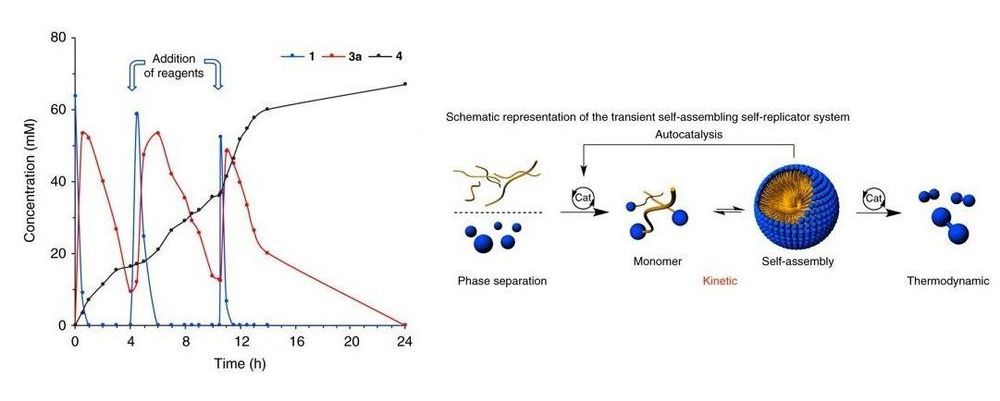As living organisms eat, grow, and self-regenerate, all the while they are slowly dying. Chemically speaking, this is because life is thermodynamically unstable, while its ultimate waste products are in a state of thermal equilibrium. It’s somewhat of a morbid thought, but it’s also one of the characteristics that is common to all forms of life.
Now in a new study, researchers have created a self-replicator that self-assembles while simultaneously being destroyed. The synthetic system may help researchers better understand what separates biological matter from simpler chemical matter, and also how to create synthetic life in the lab.
The researchers, Ignacio Colomer, Sarah Morrow, and Stephen P. Fletcher, at the University of Oxford, have published a paper on the self-replicator in a recent issue of Nature Communications.
